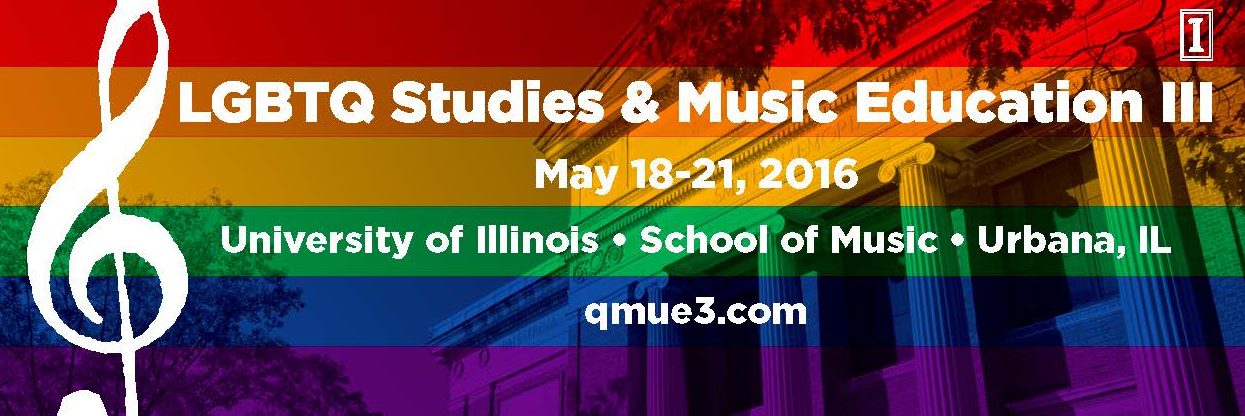Fred P. Spano
The University of North Carolina at Charlotte
Title:
LGBTQ Individuals’ Lived Experiences of High School Music Participation
Abstract:
Diversity training for preservice music teachers—indeed, all preservice teachers—intends to foster understanding issues of equality, fairness, socioeconomic status, and cultural sensitivity, among many other things, in order to create productive, sensitive learning environments. How this training functions for non-heterosexual music students (AKA sexual minorities) is largely unknown. It is the purpose of this study to understand adult LGBTQ individuals’ perceptions of their lived experiences about their high school ensemble experiences. Using interpretive phenomenological analysis (IPA) as a theoretical lens, the researcher interviewed adult LGBTQ individuals’ perceptions about these experiences. Also, the study collected data: about participants’ perceptions of bullying in high school; about their self-awareness of their sexual identity in high school; and whether participation in music had any bearing on participants’ “coming out.”
The age range for the participants was 25-50 years old. Eleven individuals self-identified as white/Caucasian, one identified as black, four women identified as lesbian, one woman identified as bisexual, six men identified as gay, and one man identified as queer. All individuals were college educated, but only one participant held a degree in music (BA). All but one participant “came out” after high school. Seven individuals participated in band and/or marching band, eight in choir, two in orchestra, and two in outside-of-school ensembles. Several of the individuals participated in more than one ensemble during high school.
Qualitative findings fell into three broad categories: the music ensemble community and surrogate family; making music then continued the motivation to making music now; and sexual identity understanding and formation. Among these, the most interesting is that the participants’ experiences of their high school experiences intersected with their sexual identity formation. From these intersections, a phenomenological model is proposed for further investigation:
Phenomenological Roles of High School Music Participation in Sexual Identity Formation
LGBTQ Music teachers as role models and compasses for their students’ sexual identity journeys.
The ensemble functions as a community of acceptance with straight and non-straight peers
The elf-worth from music accomplishments transfers to personal self-worth in one’s identity formation.
Personal creativity and expression in music transfers to eventual sexual identity expression.

Leave a Reply
You must be logged in to post a comment.